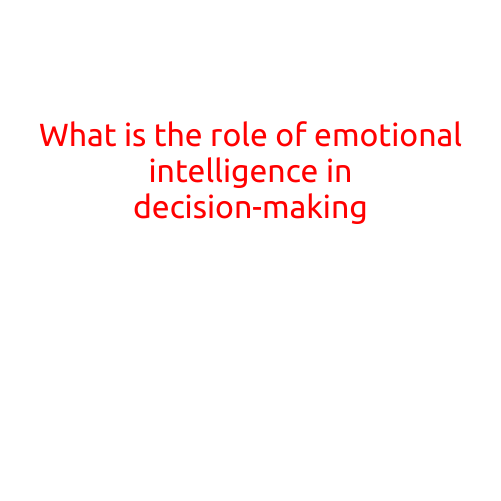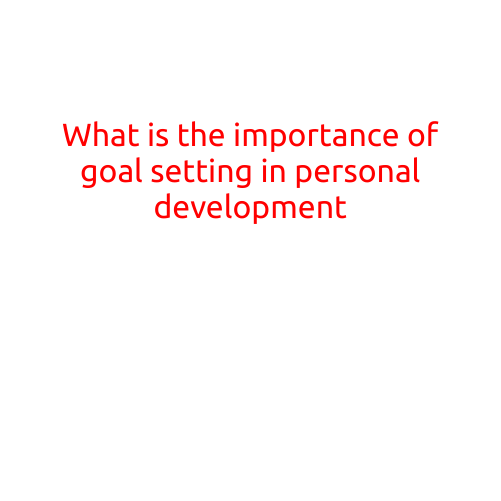
What is the Role of Emotional Intelligence in Decision-Making?
Decision-making is a crucial aspect of everyday life, whether it’s making choices in our personal or professional lives. While logic and rational thinking are essential components of decision-making, recent research has highlighted the importance of emotional intelligence (EI) in this process. Emotional intelligence is the ability to recognize and understand emotions in oneself and others, and it plays a significant role in shaping our decision-making abilities.
What is Emotional Intelligence?
Emotional intelligence is a set of skills that enables us to recognize and manage our emotions and those of others. It includes self-awareness, self-regulation, motivation, empathy, and social skills. Emotional intelligence is essential in various aspects of life, including relationships, communication, and, of course, decision-making.
The Role of Emotional Intelligence in Decision-Making
Emotional intelligence plays a crucial role in decision-making by influencing our thought processes and behaviors. Here are some ways in which EI impacts our decision-making:
- Improved Decision-Making Outcomes: Emotional intelligence helps us to make better decisions by considering the emotional implications of our choices. It enables us to weigh the pros and cons of a decision and anticipate the emotional consequences of our actions.
- Reduced Impulsivity: Emotional intelligence helps us to regulate our emotions and avoid impulsive decisions. When we are aware of our emotions, we are better equipped to make informed decisions rather than acting on emotional whims.
- Enhanced Problem-Solving: Emotional intelligence enables us to approach problems with a clear and level head. It helps us to identify the emotional triggers of a problem and develop creative solutions that take into account the emotional context.
- Better Communication: Emotional intelligence improves our communication skills, which is essential in decision-making. When we are emotionally intelligent, we are better able to listen to others, understand their perspectives, and express our own thoughts and feelings effectively.
- Increased Resilience: Emotional intelligence helps us to cope with stress and uncertainty, which are common in the decision-making process. It enables us to adapt to changing circumstances and bounce back from setbacks.
Case Studies: The Impact of Emotional Intelligence on Decision-Making
Several case studies illustrate the impact of emotional intelligence on decision-making. For instance:
- A study published in the Journal of Business and Psychology found that emotional intelligence was a significant predictor of financial performance in a sample of financial analysts.
- A study conducted by the Harvard Business Review found that leaders with high emotional intelligence were more effective in making decisions and were better able to manage conflicts.
Conclusion
Emotional intelligence plays a crucial role in decision-making by influencing our thought processes and behaviors. It improves decision-making outcomes, reduces impulsivity, enhances problem-solving, improves communication, and increases resilience. As we navigate the complexities of decision-making, it is essential to recognize the importance of emotional intelligence and cultivate it in ourselves and others. By doing so, we can make more informed, effective, and emotionally intelligent decisions.





